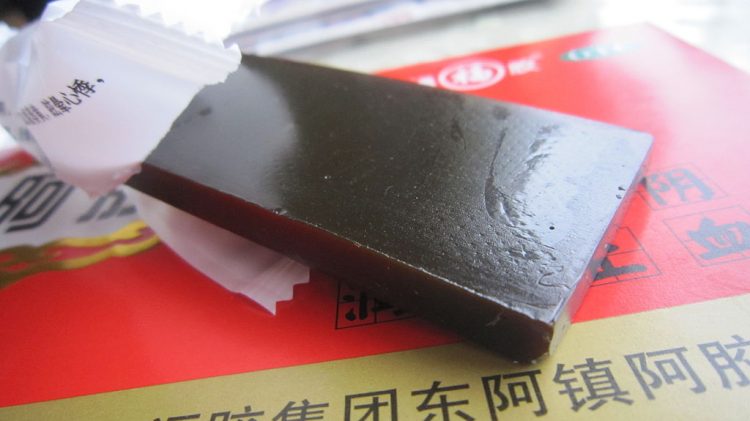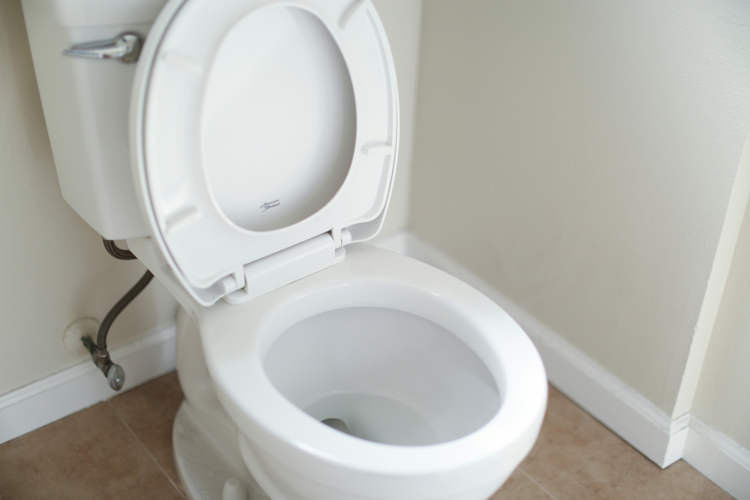Ejiao, or donkey skin gelatin, is considered one of the three treasures of traditional Chinese medicine. It is used to treat a wide range of ailments from simple colds to insomnia and impotence, and demand in the Chinese market is soaring like never before. Millions of donkeys are slaughtered all around the world and their hides transported to China to be melted into the miracle gelatin that many believe will keep them looking youthful and even prolong their life.
Dong’e county, in northern China, is the epicenter of ejiao production. Here, over 100 factories melt thousands of donkey hides into gelatin, every week, and after running out of domestic stock, they are now relying on imports from developing countries to sustain the huge demand. China’s donkey population has dwindled from 11 million during the 1990s to just 6 million today, due to both industrialization and massive slaughtering for ejiao. With local stock of donkeys going dry at an alarming rate, some factories have opened their own farms to breed and kill up to 10,000 donkeys a year, but with some of them processing over 1 million donkey hides in the same period, it’s hardly a sustainable plan. Which is why many factories have turned their attention to the foreign market.
Various countries in Africa, Asia, South America and the Middle East are supplying millions of donkey skins for the Chinese ejiao market. With the price for donkeys having skyrocketed from around $65 a decade ago to $315 today, some livestock breeders are switching to donkeys exclusively, because the trade is so profitable. But some governments have already banned China from buying their donkeys because they realized that it would eventually decimate the animal population. In September, Nigeria announced a ban on the export of donkeys in September, after the trade increased three times in one year, mainly to Asian markets. “If the export continues the animals will be decimated,” Atte Issa, a Nigerian government official told the BBC.
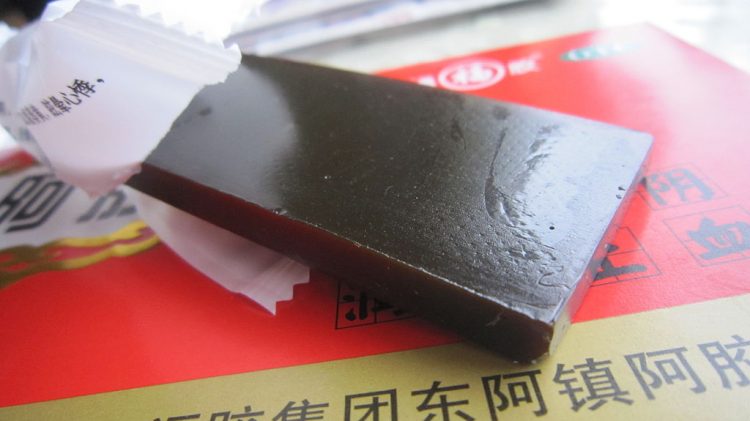
Photo: Deadkid dk/Wikimedia Commons
Burkina Faso also stopped donkey exports after 45,000 of its donkeys were slaughtered in six months from a total population of 1.4 million. Mike Baker, chief executive of the Devon-based Donkey Sanctuary, in England, claims that despite the ban, 65,000 donkeys are still slaughtered illegally in the African country. Other countries, like Kenya and South Africa are scaling up their donkey breeding facilities to meet Chinese demand, and Asian factories are already negotiating to breed and kill donkeys in Australia. And there’s also a growing black market providing a steady supply of donkey hides to Chinese ejiao factories.
But what is it about donkey gelatin that has some Chinese spending over $250 a month for it? The history of this famous traditional Chinese medicine goes back roughly 2,000 years. It used to be offered exclusively to Imperial China’s royal families, to improve their health, and was later famously used by Chairman Mao and the Communist elite. Today, the country’s millionaires and even members of the burgeoning middle-class are hungry for this mythical cure that once only available to the pinnacle of Chinese society. The Daily Mail attributes the insane popularity of ejiao to a “potent mix of snobbery, superstition and state propaganda”.
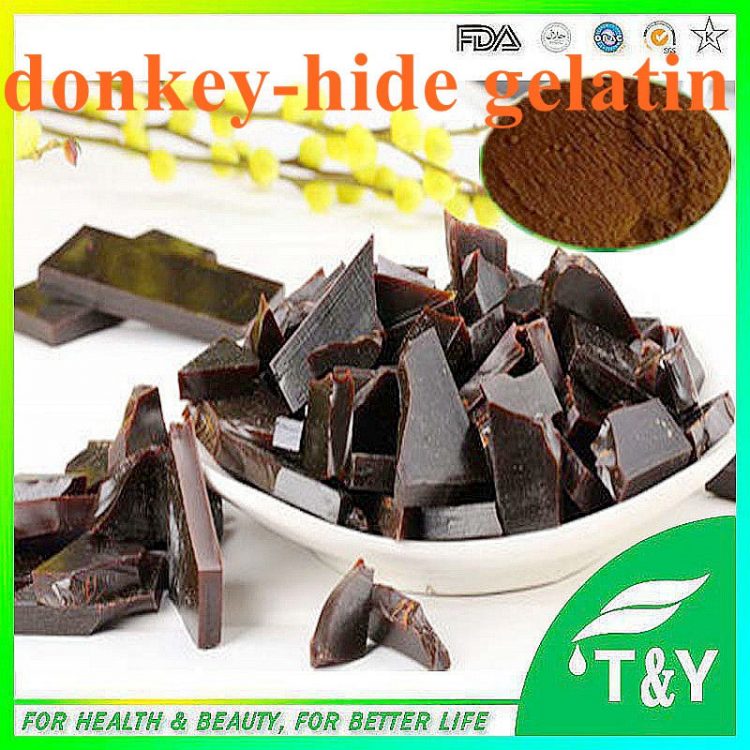
Photo: Aliexpress
Even though there is absolutely no medical evidence to support the health-boosting effectiveness of ejiao, millions of Chinese are convinced it is a miracle cure. “When a man takes ejiao, he will be strong and virile and have a long life. When a woman takes ejiao, she will keep her youth and become as beautiful as a princess,” one ejiao seller told Daily Mail reporters.
Others think ejiao boosts stamina. “If you sell ejiao to farmers in the countryside, they can work all day without getting tired,” a donkey gelatin factory official said. “We give two boxes a month to each of our workers and it makes them work faster all day long.”
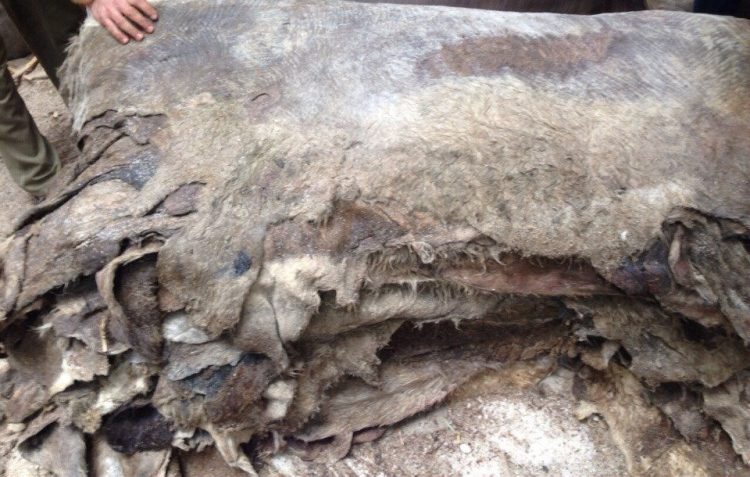
Photo: Alibaba
Zhang Tengzhi, the head of a ejiao factory in Dong’e, claims the gelatin also prevents illnesses. “If you take one of these every day, you will never get a cold,” he said about ejiao-infused cereal bars that his company produces. “We give it to our workers every day and they are always full of energy and never get ill.”
This unfounded belief in the wondrous properties of ejiao is having disastrous effects on the donkey population worldwide. There are so few donkeys left in China that breeders in the eastern province of Shandong are using implanted identification chips to protect their animals. But that’s not an option in poorer countries, especially in Africa, where small farmers often report their animals stolen only to find them skinned, miles away in the middle of the wilderness. “It is a massive business. The slaughter of donkeys is having the same effect on their population in rural African communities as the poaching of rhino horn on rhinos,” said Nadia Saunderson, outreach officer for the Highveld Horse Care Unit near Johannesburg.
Ironically, even ejiao producers are concerned about the dwindling donkey population. The boss of an ejiao factory in Dong’e, who boasts of having sold $175 million worth of donkey gelatin last year told the Daily Mail that “our only concern is that one day soon there won’t be any more donkeys left to kill.” It might sound like an exaggeration, but if the trend continues, it might turn into a dire reality sooner than we can imagine.
Just to put into perspective how in-demand ejiao is these days in China, due to the sort supply, some factories have begun producing it using the skins from mules, horses, pigs and oxen. In some extreme cases, some counterfeiters have even boiled leather shoes to obtain products similar to genuine donkey gelatin.
Sources: Daily Mail, BBC, CNN

